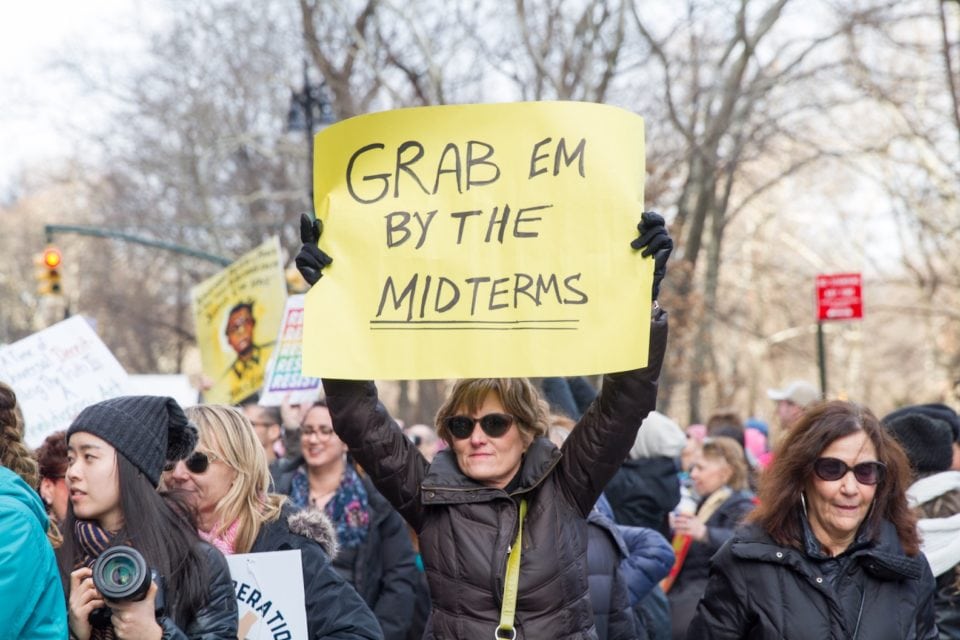Ban Open Primaries

With all the attention rightfully going on the awfulness of the caucuses, it’s worth remembering that this is not the only bad part of the American election system. There’s also open primaries.
Karen Martin, a freelance editor and pet-sitter who lives in Spartanburg, South Carolina, believes that her plan is more strategic than chaotic. Martin is the creator of Trump 2-29, which is encouraging Republicans to vote for Bernie Sanders in the state’s upcoming Democratic primary, on February 29th. “We’re really mad,” Martin told me recently, referring to her fellow-conservatives. “Mad at how our President has been treated for the past several years and wanting to do something now.” Voting for Trump isn’t an option: South Carolina’s Republican primary was cancelled in October, out of deference to the President. (“With no legitimate primary challenger and President Trump’s record of results, the decision was made to save South Carolina taxpayers over $1.2 million and forgo an unnecessary primary,” South Carolina’s G.O.P. chairman, Drew McKissick, announced in a statement at the time. A former Republican state representative sued to block the cancellation but lost in court.) Obama’s former Vice-President, Joe Biden, was expected to perform well in South Carolina; Martin wanted to vote for someone who could ruin it for him. As Iowa neared, she said, “We decided it’ll be Bernie.” Martin doubts that Sanders will ultimately be the Democrats’ nominee—though, if that happens, “It would be a great lesson in American Civics 101,” she said, adding, “To have those final debates be between an avowed socialist and a capitalist with the economic record that President Trump does, that would be really a contrast to see. Bernie makes it poetic.”
The South Carolina Republican Party has no official involvement in Martin’s efforts, but it hasn’t discouraged them, either. The executive director of the South Carolina G.O.P., Hope Walker, issued a statement acknowledging the existence of “activists that may decide to participate in the open Democratic Presidential Preference Primary” and explaining that the Party “has taken no official stand on this matter.” Meanwhile, Nathan Leupp, the chairman of the Greenville County Republican Party, told the Charleston Post and Courier, “I think we can easily affect the outcome. This is going to catch on like wildfire.” Leupp told me that he had talked not only to local activists but to the five other upstate-county G.O.P. chairmen about the plan; they concluded that it would be best for “the grassroots activists to make this push,” he said. (The Post and Courier story mentioned a planned press conference; after the story ran, Leupp said, the effort got so much attention that “we didn’t need a conference at that point.”)
Independently from Martin, a political and public-relations consultant from Greenville named Christopher Sullivan has launched a campaign that nods more explicitly to Limbaugh’s influence: Operation Chaos 2020. “We’ve put up a Web site, and we’re doing some digital work and communicating with our members and supporters,” he told me. Operation Chaos 2020 flyers were handed out at a Party meeting and garnered some attention on Twitter—there are plans for radio advertising, too, Sullivan said. Both the flyers and the Web site note that the effort is a project of the Conservative Defense Fund, the name of which may suggest a large organization; Sullivan is the chair of the group and, he said, its only full-time employee. (Karen Martin told me, of her own campaign, “The other day somebody asked, ‘So how much money is behind this effort?’ And I had to laugh. It’s when I can, in between dog-walking.”) But Sullivan is optimistic that even a modestly funded campaign could have real effects. He noted that, in South Carolina primaries, Republicans typically turn out at twice the numbers of Democrats—so even a small percentage of Republican crossover voters could be decisive in a reasonably close race.
Now, this is probably overrated. For one thing, Republican predictions of electablity are as totally pulled out of space as LGM commenters who think Bernie can’t win without the slightest evidence except that they don’t like him or the media’s obsession with the horse race. In fact, this is all driven by the sewer of horse race coverage on the 24-hour news channels. Moreover, the evidence that anyone is going to vote in large enough numbers that this sort of cross-party voting is going to make a real difference is pretty sketchy. But that’s not the point. It simply shouldn’t be allowed.
I know that many young people don’t like to register with a party and want to vote. Here’s my answer: tough. Get your big person clothes on and sully your purity pride by joining a political party if you want to influence the process by which the party chooses a presidential candidate. Just because this isn’t the single most toxic thing of a Superfund site of a political system doesn’t mean that it’s something we shouldn’t try to eliminate.


